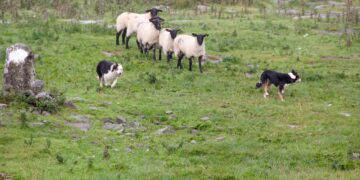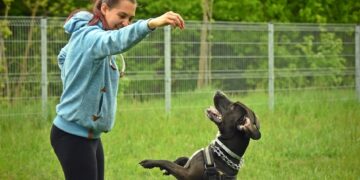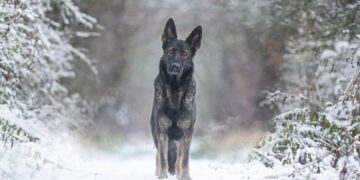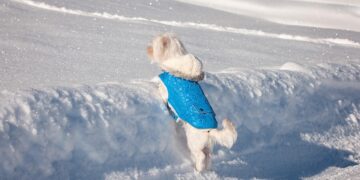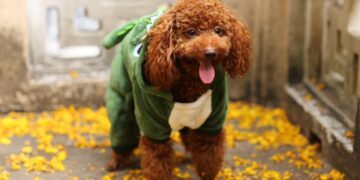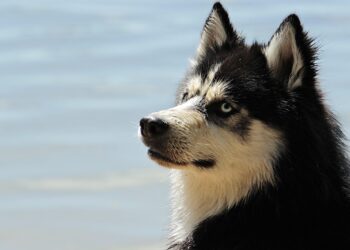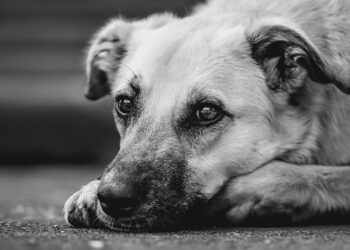Essential Dog Tips for Winter: Keep Your Pup Safe and Cozy
As the chill of winter sets in, it’s important to give special attention to our furry friends to ensure they’re safe, warm, and comfortable. Dogs, just like humans, can experience difficulties with the cold weather, from dry skin to increased risk of illness. With a few essential winter care tips, you can make the season enjoyable and safe for your canine companion!
Understanding Winter Risks for Dogs
Before diving into the tips, it’s crucial to acknowledge the common risks that colder weather poses to dogs:
- Hypothermia: Dogs can get dangerously cold if exposed to low temperatures for long periods, especially if they’re wet or in windy conditions.
- Frostbite: Dogs’ ears, paws, and tails are susceptible to frostbite when temperatures drop significantly.
- Dry Skin: Just like humans, dogs can suffer from dry, flaky skin in the winter due to indoor heating and cold weather.
- Antifreeze Poisoning: Antifreeze, used in cars during winter, is deadly to dogs even in very small amounts and can leak onto driveways and streets where it’s accessible to curious pets.
Essential Tips to Protect Your Dog in Winter
1. Keep Your Dog Warm
One of the most straightforward ways to protect your dog from the cold is by providing them with a warm coat or sweater, especially if they have a short coat and seem to shiver when they’re outside. When indoors, ensure their sleeping space is away from drafts and possibly consider a heated dog bed or warm blankets.
2. Protect Their Paws
Snow, ice, salt, and ice melt chemicals can be harmful to your dog’s paws. Consider using dog booties for foot protection or apply paw balm before and after walks to protect their paw pads. Regularly check between their toes for signs of irritation or injury.
3. Provide Shelter
If your dog spends a lot of time outdoors, providing a well-insulated doghouse is vital. The shelter should be large enough for them to move around comfortably but small enough to hold in body heat. The floor should be elevated off the ground, and the entrance should have a flap to keep out drafts.
4. Adjust Your Dog’s Diet if Necessary
Your dog may need more calories in the winter to help maintain their energy levels and keep warm. However, this can vary based on their age, health, and activity level. Consult your vet to determine if your dog’s dietary needs have changed with the weather.
5. Keep Your Dog Hydrated
Just because it’s cold doesn’t mean your dog won’t get dehydrated. Ensure fresh, unfrozen water is available at all times. This is particularly important if your dog eats dry food.
6. Be Mindful of Walk Times
During winter, try to walk your dog in the daytime when temperatures are a bit warmer, and the sun is likely to be out. Also, keep your dog on a leash near frozen ponds, rivers, and lakes to prevent them from wandering onto unsafe ice.
7. Indoor Entertainment
When it’s too cold for regular walks, finding ways to keep your dog active indoors is important for their physical and mental health. Try interactive toys, training sessions, or indoor playdates with other dogs to keep them moving.
Common Winter Questions from Dog Owners
Q: Does my dog need a winter coat?
A: While not all dogs will need a winter coat, short-haired breeds, seniors, puppies, and dogs with certain health conditions do benefit from the extra warmth. Observe your dog’s behavior in cold weather—if they seem uncomfortably cold, it’s a good idea to try a coat.
Q: How can I tell if my dog is getting too cold?
A: Shivering is a clear sign that a dog is too cold. Additionally, keep an eye out for anxiety, whining, slowing down, or looking for places to burrow. If you see these signs, it’s time to bring them inside to warm up.
Q: Is it safe to let my dog play in the snow?
A: Playing in the snow can be safe and fun for dogs, but it’s important to supervise outdoor play and make sure your dog doesn’t overexert themselves in the cold. Check their paws and underside frequently for snow build-up, which can lead to discomfort or ice burns.
Conclusion
Taking the right precautions can make winter a fun, safe season for you and your dog. By understanding the risks and preparing accordingly, you can ensure your beloved pet enjoys the winter months with as much enthusiasm as any other time of year. Ensuring your dog stays well-protected against the cold, well-nourished, and engaged will help you both enjoy the season to the fullest!







